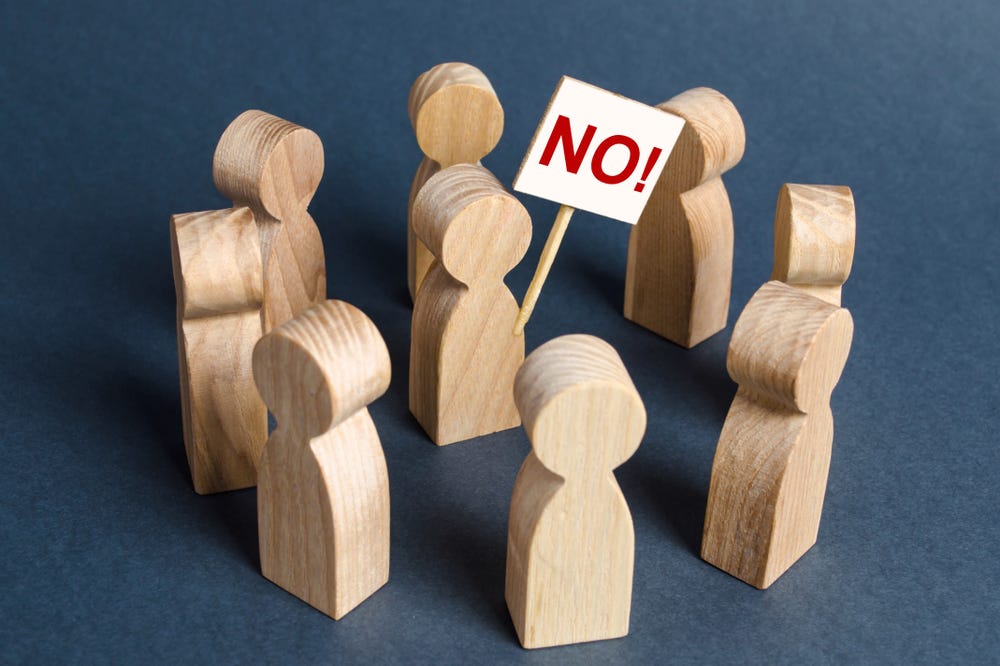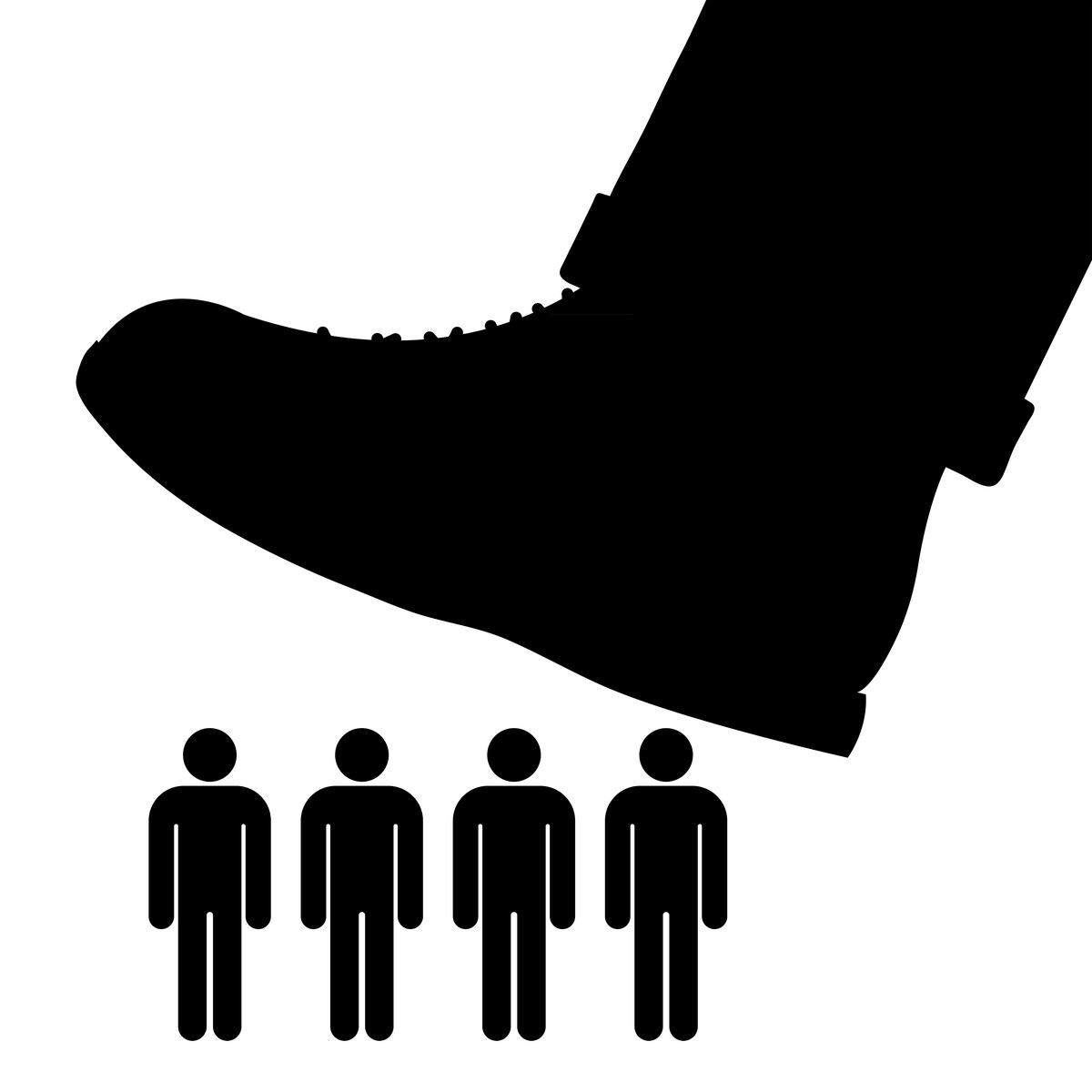E-Pluribus | March 22, 2022
What is happening to the fundamentals of our legal system, college faculty are pushing back on wokeness, and the new autocrats are just like the old autocrats.
A round up of the latest and best writing and musings on the rise of illiberalism in the public discourse:
Aaron Sibarium: The Takeover of America's Legal System
Aaron Sibarium has been doggedly tracking disturbing developments in the legal and educational system for The Washington Free Beacon. Now Sibarium has a long piece for Common Sense, Bari Weiss’s Substack. Drawing on old and new reporting, Sibarium exposes the worrying trend that, in many cases, amounts to the students themselves running the institutions or at least leaning heavily enough on the administration to bend them to the students’ will.
[T]he politicization and tribalism of campus life have crowded out old-fashioned expectations about justice and neutrality. The imperatives of race, gender and identity are more important to more and more law students than due process, the presumption of innocence, and all the norms and values at the foundation of what we think of as the rule of law.
Critics of those values are nothing new, of course, and certainly they are not new at elite law schools. Critical race theory, as it came to be called in the 1980s, began as a critique of neutral principles of justice. The argument went like this: Since the United States was systemically racist—since racism was baked into the country’s political, legal, economic and cultural institutions—neutrality, the conviction that the system should not seek to benefit any one group, camouflaged and even compounded that racism. The only way to undo it was to abandon all pretense of neutrality and to be unneutral. It was to tip the scales in favor of those who never had a fair shake to start with.
But critical race theory, until quite recently, only had so much purchase in legal academia. The ideas of its founders—figures like Derrick Bell, Alan David Freeman, and Kimberlé Crenshaw—tended to have less influence on the law than on college students, who by 2015 seemed significantly less liberal (“small L”) than they used to be. There was the Yale Halloween costume kerfuffle. The University of Missouri president being forced out. Students at Evergreen State patrolling campus with baseball bats, eyes peeled for thought criminals.
At first, the conventional wisdom held that this was “just a few college kids”—a few spoiled snowflakes—who would “grow out of it” when they reached the real world and became serious people. That did not happen. Instead, the undergraduates clung to their ideas about justice and injustice. They became medical students and law students. Then 2020 happened.
All of sudden, critical race theory was more than mainstream in America’s law schools. It was mandatory.
Read the whole thing.
Kenin M. Spivak: Resistance Is Not Futile
Progressive trends in education are often framed as inevitable, but National Association of Scholars member Kenin Spivak writes for Minding the Campus that there are some indications that many faculty members on college campuses are getting fed up with the undermining of their primary role as educators. Cliché notwithstanding, Spivak says, resistance is not futile.
Perhaps bolstered by parental opposition to the teaching of critical race theory in K-12 schools, university professors are resisting the onslaught by speaking out, and then litigating to protect their rights from administrators seeking to discipline them for doing so.
In an open letter to the University of Massachusetts Boston posted this month, more than 50 faculty members criticized a proposed new mission and vision statement for the university that shifts the priorities from education and research to becoming “an anti-racist” institution dedicated to “equity, environmental sustainability, social and racial justice.” The faculty letter observes that research and teaching are barely mentioned in the university’s proposal.
The university’s proposal holds each faculty member “accountable” for ensuring that “these values drive all decision-making,” including decisions about research, the allocation of funds, and the development of campus policies. The faculty’s retort is that the university’s vision would seriously damage “the demographically and ideologically diverse group of students we serve—particularly those who see education as a means to rise socio-economically,” adding “under no circumstances can political or ideological activism be the primary purpose of a public university. . . . the role of the university is to empower people to take action themselves—not to coerce students, faculty, or institutional units to do so.”
In bold face, the faculty letter proclaims what was until recently an infallible tenet of higher education: “[W]e believe that the main goals of a university are to empower the pursuit of knowledge, to cultivate lifelong learning, to foster the exchange of ideas, to encourage critical thinking, to unequivocally support free inquiry, and to instill respect for a diversity of ideas and viewpoints.”
Read it all.
Kevin D. Williamson: Autocracy’s Fatal Flaws
While direct comparisons of China’s Chairman Xi and Russia’s Vladimir Putin to infamous supervillains of past centuries may fall short, Kevin Williamson writes for National Review that even amongst tyrants, there is nothing new under the sun. What autocrats often view as their greatest strengths turn out to be the seeds of their own downfall, and in the end, Putin, Xi and their ilk will likely be no different.
The old truths remain unchanged: The free world isn’t free because it is rich — it is rich because it is free. Freedom is not only a moral good but also a practical one: Because we have a system that enables us to fail quickly and fail cheaply, we can try many different approaches to social and material problems, throwing everything we have at them and seeing what works. Authoritarian societies, in contrast, have trouble adapting to fluid conditions, often discomfited by problems that cannot be solved with bayonets. One by one, Americans and Germans and Englishmen aren’t any more intelligent than Russians or Chinese or Saudis, but the institutions of free societies — from the free press to competitive elections — enable free people to rally and deploy their collective intelligence in a way that is difficult or impossible in unfree societies.
Authoritarian societies do not even really confer the one advantage you would think they would: stability. If Vladimir Putin were to be hit by lightning tomorrow, the entire character of Russian public life would change immediately, and the country would be thrown into crisis; if Joe Biden were to throw in the towel on Monday, the United States would keep on keepin’ on. We may treat every presidential election like it is an existential dilemma, but, as you may have noticed, American life does not change radically from administration to administration. (On the other hand, if you erase three nonpoliticians from American history — Steve Jobs, Mark Zuckerberg, and Roger Ailes — the political culture looks very different, indeed.) That’s why Putin is scrambling around arresting his advisers and looking for saboteurs under his bed, while Dwight Eisenhower left Americans with the impression that he had spent the remarkably eventful years of his presidency playing golf: Real stability is dead boring.
[ . . . ]
The fatal conceit of men such as Vladimir Putin is the belief that their countries can rise in the world the same way they rose in their countries — with a little bit of cleverness and a great deal of ruthlessness. Except in the very short term, that never really works, because it is very, very hard to build a strong and powerful country without the things that liberalism is good at: property rights, entrepreneurship, long-term investment, social experimentation, cooperation, trust. These are the sources of wealth, innovation, stability, and confidence. Putin, for all his experience with the dark side of human affairs, apparently still hasn’t figured that out.
Read it all here.
Around Twitter
Robby Soave and Glenn Greenwald on the LGBTQ author whose award nomination was revoked over her defense of another author:
Ryan T. Anderson points out the glaring flaw in a NBC News opinion article comparing transgender swimmer Lia Thomas to the legendary Jackie Robinson:
Peter Boghossian, Rajiv Malhotra and Robert P. George with some thoughts on engaging conversations over deeply held beliefs:
Finally, even for those who profess to not be worried about their own “cancellation,” Conor Friedersdorf with 90% of the iceberg that many do not see:











"If the analogy to Jackie Robinson was accurate, the logical conclusion would be getting rid of separate male-female sporting events the way we rightly got rid of separate black-white sporting events. Skin color is irrelevant to athletics, sex is not. "
____________________________
I'm not so sure that's entirely correct. Back in 2002 when we went into Afghanistan, we had no real allies in Europe. The quip then was that the times were about as strange as they could get: the best golfer was black, the best rap singer was white, the best basketball player was Chinese, the French thought America was arrogant, and Germany didn't want to go to war.
It's not an accident that most pro basketball players are black--on average, they play better b-ball than whites do. Blacks are clearly overrepresented in sports. Pro sports are big business, so managers do practical things: they hire the people who are best at the job--at least once the managers figure out what that is. (See Moneyball.) They developed ragtime music, which I see as a modern embodiment of Bach's music. Only a few whites have written as good Dixieland jazz, which I dearly love.
Different groups have different native talents. It's how the world is put together. Men generally have larger, more muscular bodies than women do. Changing hormones around a little bit, with or without surgery, makes a little difference but clearly nowhere nearly enough to level the playing field against the likes of "Lia Thomas." Want to level the playing field? Don't let him compete against women until he gets his total weight down the that of the heaviest XX woman on the team. Since he probably has little body fat, muscle mass will be the first to go. That ought to take care of the problem handily.
If Thomas thinks that going from a ranking of over 400 competing against men to being first among women is a big deal, Thomas needs psychiatric help. What Thomas doesn't need is being reinforced in delusions of greatness. The fact that I can do much more sophisticated math than 99.9999% (or just a few more) of kids in kindergarten does not make me Einstein. I'm far from that.*
By the way, wrestling categories are determined by weight. Why not swimming?
Part of Thomas' problem makes me sad, part makes me angry, and part really frightens me. That last part is the general acceptance of wildly delusional ideas and magical thinking as somehow OK. There's no universe in which they are. Men aren't women because they say they are and take a few pills and women aren't men because they say they are and take a few pills. Terrorists who go out and murder women, children, and the elderly aren't freedom fighters and they aren't brave: like Thomas, they're just cowards and murderers. Speech isn't violence and silence isn't violence; they're just speech and absence of speech. I could go on (and on) but everyone reading this already knows the litany.
Of course, I could be wrong about all of this....
* There's a Jeff Foxworthy-esque thing: you probably went to MIT if you're very smart, but you know a bunch of people who are a whole lot smarter than you are. And none of your friends believe you.